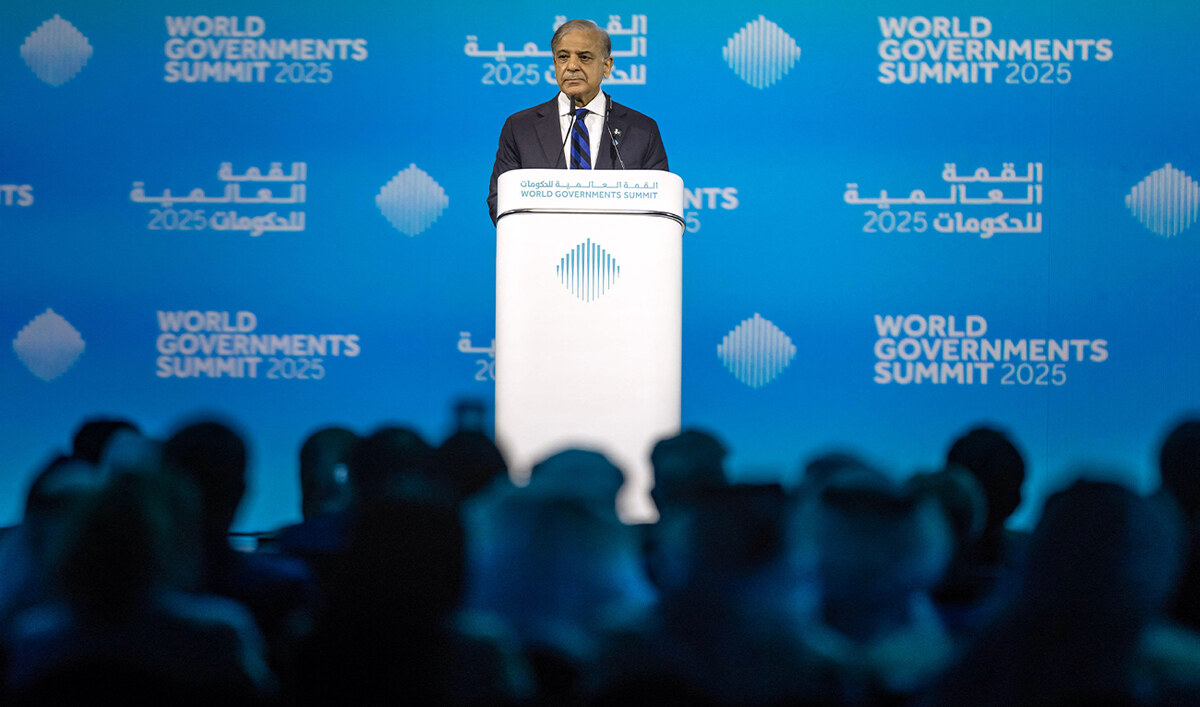ISLAMABAD: Pakistani Prime Minister Shehbaz Sharif on Tuesday used the pulpit at the World Governments Summit in Dubai to call for the creation of an independent state of Palestine, saying it was the only path toward a ŌĆ£durable and just peace.ŌĆØ
The latest Gaza war, which began after an Oct. 7, 2023, Hamas attack on Israel, has been paused since Jan. 19 under the ceasefire agreement between Israel and Hamas that was brokered by Qatar and Egypt with support from the United States.
More than 48,000 Palestinians have been killed in the war, the Gaza health ministry says, and nearly all of GazaŌĆÖs 2.3 million population has been internally displaced by the conflict, which has caused a hunger crisis.
Some 1,200 people were killed in the October 7, 2023 Hamas-led attack on southern Israeli communities and about 250 were taken to Gaza as hostages, Israeli tallies show.
ŌĆ£This gathering could not have come at a more opportune time as the region begins to recover from the tumultuous aftershocks of the tragic conflict in Gaza, which has claimed [lives of] over 50,000 innocent Palestinians,ŌĆØ Sharif said as he addressed the WSG.

Pakistan's┬ĀPrime Minister Shehbaz Sharif addresses the audience at the plenary hall during the World Governments Summit in Dubai on February 11, 2025. (AFP)
ŌĆ£It is now our hope that the genocidal operation will be followed by a lasting peace. However, Pakistan believes that durable and just peace is only possible through a two-state solution in accordance with the relevant UN resolutions, that is the creation of an independent state of Palestine, with pre-1967 boundaries and Al-Quds as its capital.ŌĆØ
Palestinian territory ŌĆō encompassing the Gaza Strip and West Bank, including East Jerusalem ŌĆō has been occupied by Israel since 1967.
Pakistan does not recognize Israel and has consistently called for an independent Palestinian state based on ŌĆ£internationally agreed parameters.ŌĆØ














